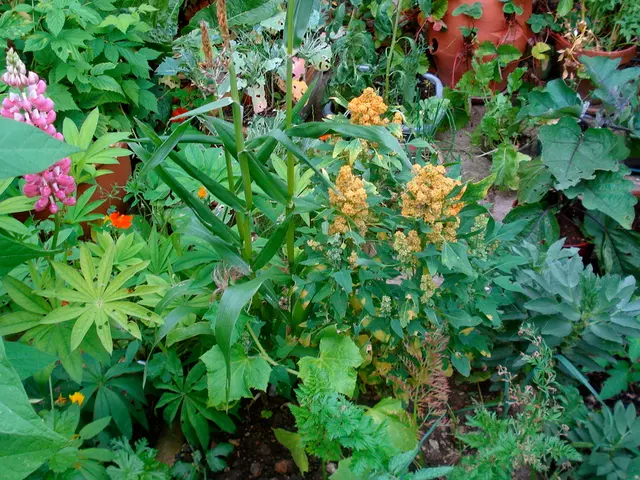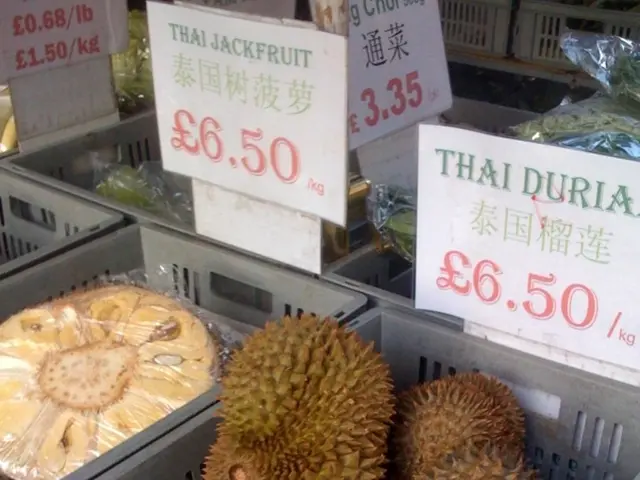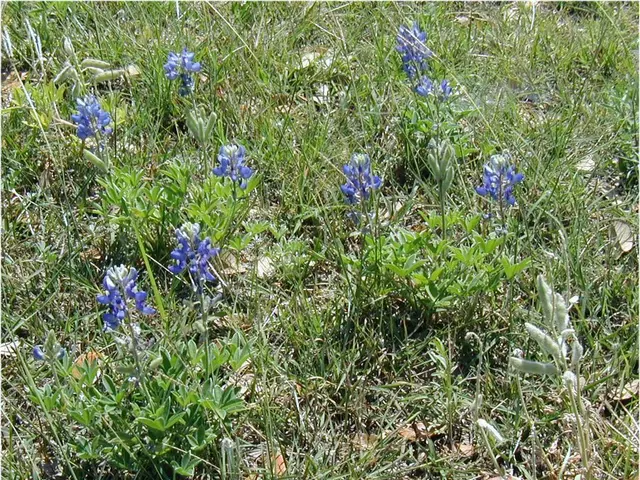Ensuring a Healthy Summer for Wildlife: A Clever Trick with a Penny in Your Birdbath
A Grime-Free Bird Bath with Pre-1982 Copper Pennies
Gardeners and wildlife can appreciate a clean bird bath, but maintaining its cleanliness can be a daunting task. However, a simple and cost-effective solution with copper pennies could make the chore more manageable and foster a healthier environment for feathered visitors.
Copper coins, specifically those minted before 1982, can help prevent algae growth and reduce the need for frequent cleaning. By placing a few pennies at the deep base of the bird bath, an algaecidal chemical reaction occurs in the water, keeping the water cleaner for longer.
Rocky Trifari, a bird enthusiast, explains that copper is a natural biocide and hinders the development of algae and other microorganisms by disrupting their biological processes. Copper ions leaching into the bird bath's water creates an unfavorable condition for algae growth, minimizing the slimy buildup often found in birdbaths.
However, it is essential to note that while placing copper pennies in the bird bath can reduce algae growth, it does not eliminate the need for regular cleaning and water changes. Monika Sangar, an avian nutrition specialist, emphasizes that prolonged exposure to copper can pose a health risk, especially for smaller bird species, so it is crucial to limit the number of coins in a larger birdbath and practice further maintenance.
Before introducing the coins, clean the pennies thoroughly with natural cleaning agents and check for signs of rust or corrosion. To fully prepare the penny for the bird bath, use common household products such as vinegar, salt, lemon juice, and baking soda to scrub them clean.
Rocky Trifari is the founder of The Rocky Safari, where he documents his wildlife encounters and birding adventures for over a decade. Monika Sangar is an Avian Nutrition Specialist with a Master of Science in Molecular Biology, emphasizing evidence-based care, behavioral enrichment, and long-term wellness for companion parrots. She is the author of "The Science of Avian Nutrition."
In the quest for a clean bird bath, consider adding small garden fountain ideas, such as a solar bird bath fountain pump, to promote movement and maintain fresh water. With the arrival of warmer weather, birds will be seeking hydration more than ever, making a clean bird bath a welcoming addition to your yard.
Remember that while copper pennies play a crucial role in preventing algae growth, adequate bird bath maintenance is essential for ensuring a safe environment for birds. Regular cleaning and water changes, as well as appropriate placement and preparation of the pennies, will ensure your bird bath remains healthy and inviting.
Resources
- White Vinegar from Walmart: [Link]
- Great Value Lemon Juice 100% (Walmart): [Link]
- ARM & HAMMER Pure Baking Soda (Walmart): [Link]
- Brush for Bird Baths from Amazon: [Link]
- Solar Bird Bath Fountain Pump from Amazon: [Link]
- Erva Copper Bird Bath Purification Disk (Amazon): Link
- The Science of Avian Nutrition: [Link]
Incorporating copper pennies into a home-and-garden setup, specifically in a bird bath, can be beneficial for gardeners and wildlife. By placing a few pre-1982 copper pennies at the deep base of the bird bath, gardeners can leverage a natural biocide that hinders algae growth and reduces the need for frequent cleaning (Rocky Trifari, Monika Sangar).
A clean bird bath, enhanced with some small home-and-garden ideas such as a solar bird bath fountain pump, can cater to the hydration needs of feathered visitors as the weather warms up (Rocky Trifari).







